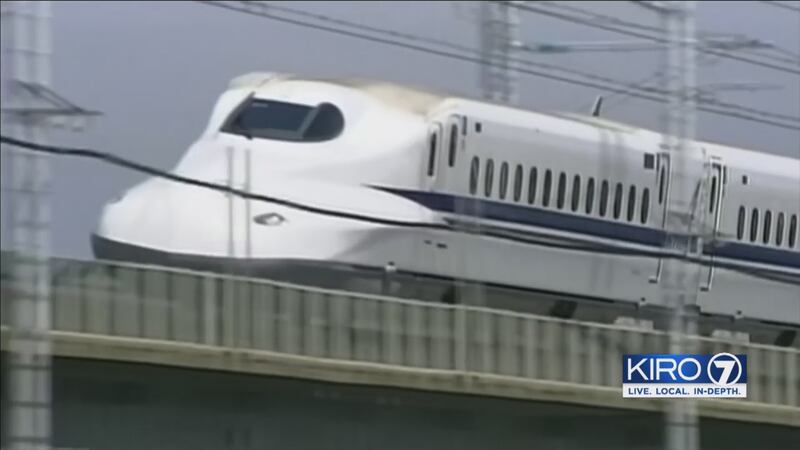OLYMPIA, Wash. — The Washington Department of Transportation released the results of a study Monday that evaluated the potential impact of ultra-high-speed ground transportation in the Pacific Northwest.
“Ultra-high-speed ground transportation could transform the Pacific Northwest by decreasing travel time, improving overall mobility and boosting economic growth, according to new study of the concept,” a spokesperson for WSDOT wrote in a news release.
Researchers examined travel times of trips that were less than two hours between Vancouver, British Columbia and Portland, Oregon, and trips that were less than one-hour between Seattle and each city.
The study expanded on a 2017-2018 preliminary examination and was delivered July 12 to the state Legislature.
"The prospect of uniting Washington, Oregon and British Columbia with an ultra-high-speed transportation system that propels us into the future is incredibly exciting," Washington Gov. Jay Inslee said.
WSDOT said the ultra-high-speed system is projected to travel at over 200 mph on high-speed rail, magnetic levitation or hyperloop technology.
Scroll down to continue reading
More news from KIRO 7
- Vashon Island man sent manifesto before he was killed at detention center
- Two people died after being found with gunshot wounds to their heads on Mercer Island
- Driver arrested after crashing into child, car, power pole; showed signs of impairment, police say
- Rallies planned in protest of Amazon annual Prime Day, including at Seattle headquarters
- Do you have an investigative story tip? Send us an email at investigate@kiro7.com
“The all-electric system would be standalone, rather than sharing or relying on existing infrastructure. It would include some elevated tracks and tunnels, with no at-grade crossings with roads,” a WSDOT official said.
The authors of the study found the ultra-high-speed ground transportation could:
- Create a new transportation spine in the region, transforming mobility for all residents.
- Draw new companies to the region and create an estimated $355 billion in economic growth.
- Be built within the 2017 estimate of $24 billion to $42 billion in upfront construction costs.
- Provide between 1.7 million to 3.1 million one-way annual trips at start-p, in what analysts called a conservative estimate.
- Generate between $160 million and $250 million in initial annual revenue.
- Improve the environment with a projected reduction of 6 million metric tons of carbon emissions in the first 40 years as travelers opt for the ultra-high-speed option rather than private vehicles or planes.
Find previous coverage from KIRO 7's Graham Johnson below:
Cox Media Group








